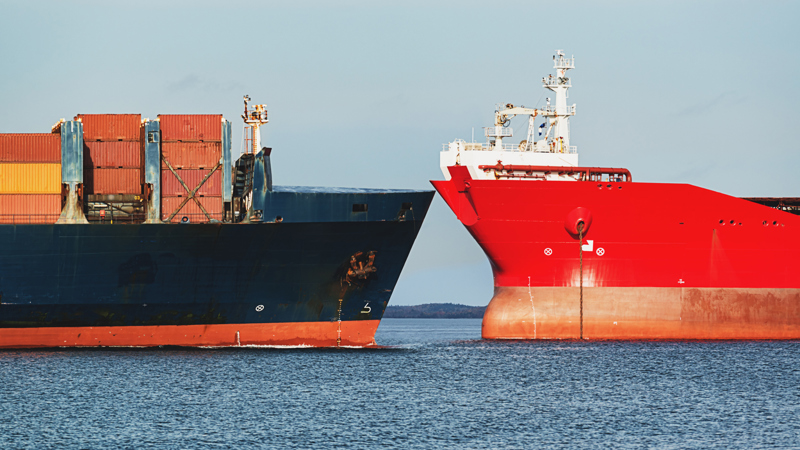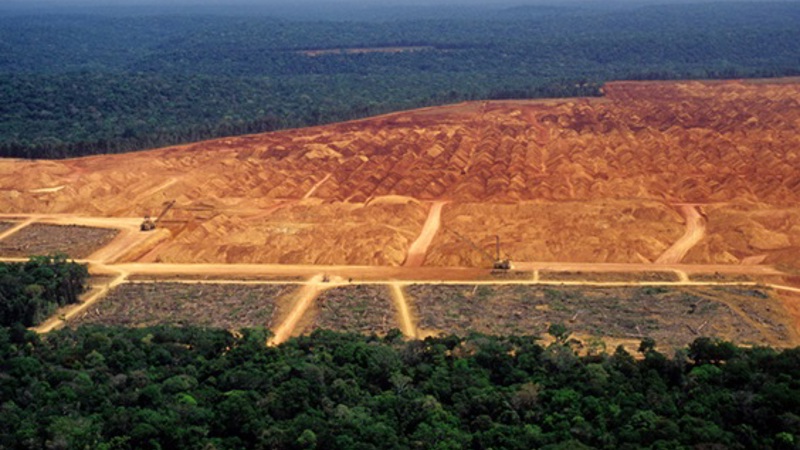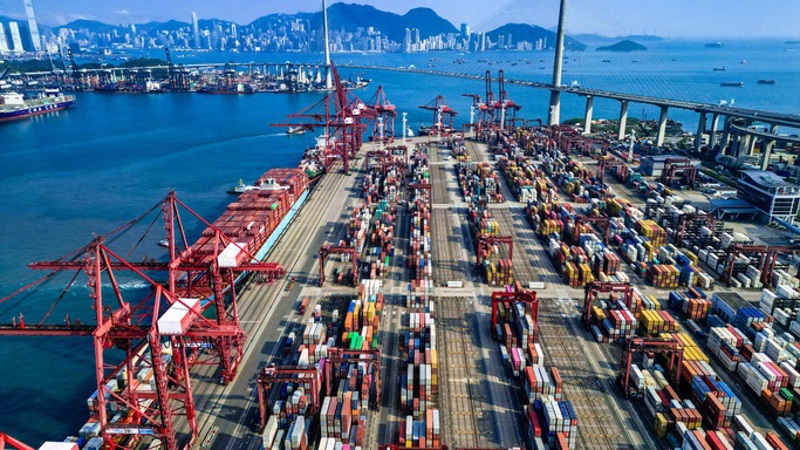Dutch Court orders Shell to bring its strategy in line with international climate targets
June 2021
Background
In 2019, various NGO’s including Milieudefensie (also referred to as “Friends of the Earth”) and 17,000 individual claimants collectively started legal proceedings against the parent company of the oil major Shell, Royal Dutch Shell (“RDS”), based in the Netherlands, before the District Court of The Hague. The claimants argued that RDS is the party ultimately responsible within the Shell group of companies for the group’s climate policies. They hold RDS liable for violation of its obligation to ensure that the CO2 emissions attributable to the Shell group will timely have been reduced in line with the international standards. This includes a reduction of the scope 1, 2 and 3 emissions as applied by the World Resources Institute Greenhouse Gas Protocol, i.e. their own direct emissions (scope 1), the suppliers’ emissions (scope 2), and all other indirect emissions that occur in a company’s value chain, including emissions from customers (scope 3).[1]
In the legal proceedings, RDS emphasized that it endorses the need to tackle climate change by achieving the goals of the Paris Agreement and reducing global CO2 emissions. However, it deemed meeting these targets a concerted effort of society as a whole. In RDS’ view, the legislator and politics should provide a solution. RDS therefore rejected liability.
Decision of the District Court of The Hague
In its extensive judgment of 26 May 2021[2], the District Court of The Hague concluded that RDS is not currently acting unlawfully, but that it is obliged to reduce the CO2 emissions of the Shell group’s activities through the Shell group’s corporate policy by net 45% by the end of 2030 relative to 2019. This reduction obligation relates to the Shell group’s entire energy portfolio and to the aggregate volume of all emissions (scope 1 through to 3). It is up to RDS to implement this reduction obligation, taking account of its current obligations and other relevant circumstances. The reduction obligation is an obligation of result for the activities of the Shell group, with respect to which RDS may be expected to ensure that the CO2 emissions of the Shell group are reduced to this level. However, it is a significant best-efforts obligation with respect to the business relations of the Shell group, including - remarkably - the end-users. In the context of the latter obligation, RDS may be expected to take the necessary steps to remove or prevent the serious risks ensuing from the CO2 emissions generated by the business relations, and to use their influence to limit any lasting consequences as much as possible.
From a legal perspective, the decision is based on a violation of the general tort provision set out in section 6:162 of the Dutch Civil Code.[3] The standard is interpreted by the court on the basis of all relevant facts and circumstances. This includes, in the view of the court, the best available science on dangerous climate change and how to manage it (including the most recent reports on climate change, inter alia those published by the UN’s Intergovernmental Panel on Climate Change (“IPCC”)). The court also adopted the widespread international consensus that human rights offer protection against the impact of dangerous climate change and that (private) companies must respect human rights.
This ruling is in line with the broad international consensus that every company must independently work towards the goal of net zero emissions in 2050.[4] If companies do not do so, it is generally accepted that the risk of climate change will be high, with a substantial chance of damage and serious risks for human rights. According to the Court of The Hague, RDS, as the policy-making head of the Shell group, is obliged to pursue this goal of emission reduction, because it has a decisive influence on (the policy of) the Shell group and the Shell group has, even globally, a significant carbon footprint (even higher than many countries, as the court considers). In other words, according to the court, Shell's prominent position entails special obligations. The fact that Shell occupies only a modest position in the world markets and that competitors are not bound by the court's judgment was, according to the court, insufficient for Shell not to do more than it currently does. Shell must take responsibility for their share of emissions, in the widest sense.
Comments
The judgment is ground-breaking for several reasons. In recent years, several legal actions have been pursued successfully against governmental bodies in various jurisdictions.[5] However, it is unprecedented that interest groups have been able to successfully challenge an internationally operating private company of this size on what they see as a negligent policy regarding the prevention of climate change.
It should be noted, however, that Shell has only been given a target by the court. It is still unclear whether, and if so how, Shell will implement this target. In their response to the ruling published on their website, Shell write that they will “continue to take significant steps to accelerate the transition of our business to net-zero emissions”.[6] It is likely that the judgment will have consequences for Shell's subsidiaries, which are located in more than 70 countries. According to the ruling, they will have to do more to reduce their emissions. It is also likely that the countless customers and suppliers of Shell will feel the consequences, as over 85% of Shell’s total emissions are scope 3 emissions.[7] Incidentally, Shell has already indicated that it is considering an appeal.[8] Regardless of whether or not Shell appeals the decision and whether the judgment then will be upheld, it will be of relevance. The judgment has been declared provisionally enforceable, whereas a final decision of the court of appeal and possibly a Supreme Court are unlikely to be available in the near future.
The ruling gives a clear signal that polluting companies have their own responsibility towards the climate and the public, which they will have to take and act upon. To begin with and unsurprisingly, this relates to their own emissions. Moreover, the responsibility extends to their products and the emissions that are caused by the same. Companies like Shell cannot disregard their responsibilities and hide behind the lack of express written laws.
The judgment’s impact is expected to expand beyond the Shell group of companies. It cannot be ruled out that other polluting companies will regard the judgment as an additional incentive to accept their own responsibility voluntarily. Also because, as it is to be expected that interest groups will try to force more companies with high emissions to change their policy by means of legal proceedings, and not only in the Netherlands. It has already been announced in the media that a lawsuit against the French oil company Total is being prepared.[9] Moreover, the reasoning leading to the judgment does not appear to be limited to big oil. It seems more widely applicable.
In the Dutch transport sector (excluding international air and sea freight), the level of overall emissions has not reduced much in recent years. In fact, a comparison of the emissions from 2019 with 2010 show a reduction of 3% only, whereas the overall reduction percentage in the Netherlands was 11%. It is therefore not inconceivable that interest groups will at some point take similar action against major players in the transport sector as well.[10] In fact, a spokesperson of Friends of the Earth, one of the initiators of this judgment, already stated that the maritime sector will certainly be one of their next targets for similar actions.[11]
In addition, further innovation in legislation may be expected. One of Shell’s arguments why the claim in their view could not succeed was that in the absence of clear legislation there are no – enforceable - obligations imposed on private companies. This argument and the decision may well be a further incentive for legislators at national and international level to expand on existing regulations. The EU has already announced that further environmental rules will be published in July 2021.[12]
* * *
[1] The scope 1, 2 and 3 emission division is applied by the World Resources Institute Greenhouse Gas Protocol. See also: https://www.ghgprotocol.org/sites/default/files/ghgp/standards_supporting/Diagram%20of%20scopes%20and%20emissions%20across%20the%20value%20chain.pdf
[2] The decision has also been published in the English language; District Court of The Hague 26 May 2021, ECLI:NL:RBDHA:2021:5337, https://uitspraken.rechtspraak.nl/inziendocument?id=ECLI:NL:RBDHA:2021:5339&showbutton=true&keyword=shell
[3] The Court applies Dutch law on the basis of art. 7 Rome II Regulation on the applicable law to non-contractual claims. According to the Court, RDS’ adoption of the corporate policy of the Shell group is to be regarded as an independent cause of the damage, which may contribute to environmental damage and imminent environmental damage with respect to Dutch residents and the inhabitants of the Wadden region (para. 4.3.6).
Art. 6:162 Dutch Civil Code provides: “(1) A person who commits a tort against another which is attributable to him, must compensate any consequential loss suffered by the other. (2) Except where there are grounds for justification, the following are considered as torts: the violation of a right and an act or omission breaching a duty imposed by law or a rule of unwritten law relating to proper social conduct. (3) A tort is attributable to a tortfeasor if it is due to his fault or to a cause for which he is responsible at law or pursuant to generally accepted principles.”
[4] The Paris (Climate) Agreement under 117, 133 and 134 cf. the Climate Ambition Alliance established during the 25th Conference of the Parties in Madrid in 2019.
[5] See, inter alia, the decision of the Dutch Supreme Court in the case “Urgenda” (20 December 2019, ECLI:NL:HR:2019:2006) and the recent “Klimaurteil” of the German Constitutional Court (24 March 2021).
[6] https://www.shell.nl/media/persberichten/media-releases-2021/reactie-shell-op-uitspraak-klimaatzaak.html#english
[7] Judgment District Court of The Hague, para. 4.4.29; https://www.shell.nl/media/persberichten/media-releases-2021/reactie-shell-op-uitspraak klimaatzaak/_jcr_content/par/textimage_1644315100.stream/1622813425539/1d68d004623aeb05f8a627730bc6089f09fb6025/faq-dutch-district-court-legal-case.pdf, p. 3.
[8] https://www.shell.nl/media/persberichten/media-releases-2021/reactie-shell-op-uitspraak-klimaatzaak/_jcr_content/par/textimage_1644315100.stream/1622813425539/1d68d004623aeb05f8a627730bc6089f09fb6025/faq-dutch-district-court-legal-case.pdf , p. 4.
[9] https://nos.nl/nieuwsuur/artikel/2382539-na-klimaatzaak-shell-volgt-nu-zaak-tegen-franse-total
[10] https://www.trouw.nl/duurzaamheid-natuur/na-het-shell-vonnis-kan-elke-grote-vervuiler-aangepakt-worden-denkt-deze-jurist~b758243c/?referrer=https%3A%2F%2Fwww.google.com%2F; https://splash247.com/shell-ruling-should-send-shudders-throughout-shipping/
[11] https://www.nt.nl/scheepvaart/2021/06/02/scheepvaart-kan-borst-natmaken-na-shell-vonnis/
[12] https://www.consilium.europa.eu/en/press/press-releases/2021/05/05/european-climate-law-council-and-parliament-reach-provisional-agreement/ The plans will likely include a reduction target of 55% for 2030 compared to 1990.











